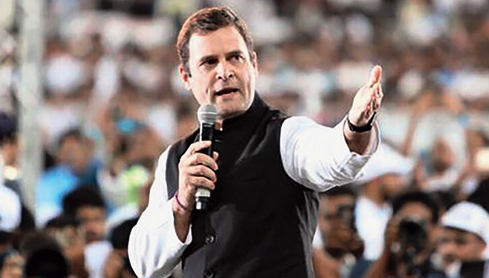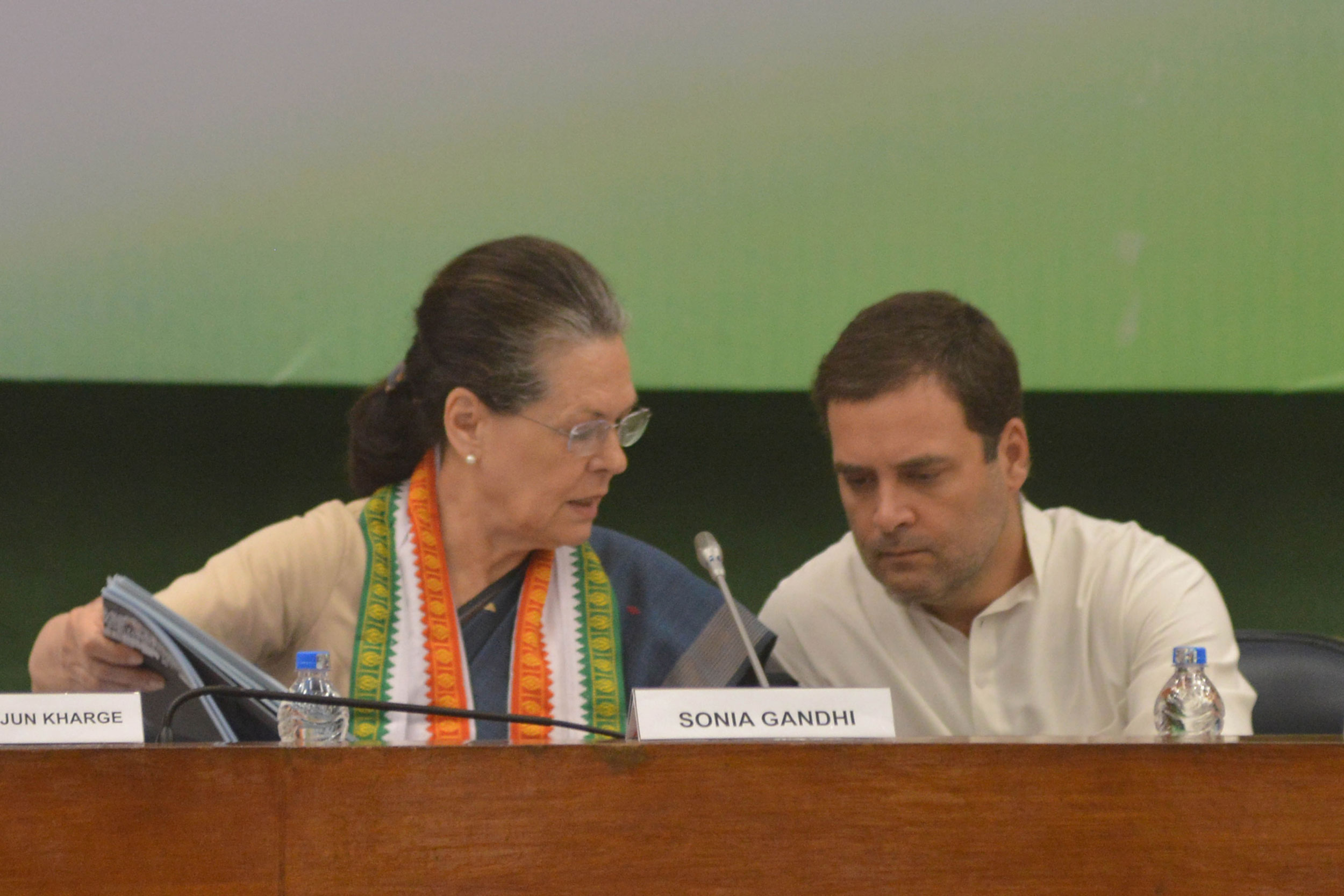Congress president Rahul Gandhi on Friday evening said in Dubai that the past four-and-a-half years had been “sad” for him as an Indian because his “beloved country” had been divided for “political benefits”.
Addressing a massive gathering of Indians, Rahul said: “As an Indian, it is sad for me, as India can’t be strong or successful if it is divided.”
The interaction with the Indian diaspora at the Dubai cricket stadium appeared to be a launch pad for the general election and the Congress president indicated that divisive politics, unemployment and farm distress would be the main planks on which it will be fought.
Rahul said: “Today, my beloved country is being divided for political reasons, for political benefits. It is being divided among different religions, different communities, rich and poor. We are in a cricket stadium. I make an analogy of hitting a six. I want to ask you, “Can a cricket team that is divided, a cricket team where the batsman doesn’t talk to bowlers, where the bowler doesn’t talk to the wicket-keeper, where the wicket-keeper doesn’t talk to fielders, can that cricket team ever win a game? Then how can a country that is divided be successful? It’s impossible.”
Amid thunderous applause from the audience, which included Indians from various states and communities, Rahul said: “The first task is to bring India together. All our religions, communities, peoples together. We have to say — ENOUGH! It is impossible for our great country to succeed if it is divided.”
Rahul has spoken of intolerance in India before an overseas audience earlier but this time he referred to the impending electoral battle, saying: “We will win this battle by bringing India together.”
Rahul added: “It is sad that instead of discussing unemployment, the future of the younger generation, and how to empower women, we are fighting each other, threatening each other. Some people talk of a Congress-mukt Bharat. We don’t want a BJP-mukt Bharat but we want a united India.”
Contesting the RSS-BJP construct of ancient India, which rests on Hindu supremacy, Rahul argued that Mahatma Gandhi had picked the concept of non-violence from India’s philosophy and culture.
“You see an environment of anger and hatred everywhere, including the United States. India has the answer for the entire planet. Non-violence is embedded in our DNA,” he said.
Rahul consciously built his critique of Prime Minister Narendra Modi’s politics, without naming him, by showering praise on the “humility” of the UAE’s rulers and pointing to 2019 being celebrated as a “Year of Tolerance” there.
“Great nations are built by humility, not arrogance, by leaders who listen to not only the natives but those who come from outside. Millions of Indians come here and you built this country,” he said, underlining the importance of the culture of accommodation and tolerance.
The suggestion was that the Indians who live in the Gulf, the US, Europe and Africa can do so because people and nations believe in mutual co-existence.
Arguing that India’s strength, too, lay in tolerance and pluralism, he tried to explain to the NRIs how problematic the RSS politics, based on majoritarianism and religious supremacy, was.
The Congress chief reminded the audience they were not first-generation NRIs and that Indians had been moving to various parts of the world for centuries, subtly underlining the problems that chauvinism and bigotry created for this cross-civilisational existence.
Rahul also focused on the agrarian distress and unemployment as major problems in India that had acquired the proportions of crises.
He mentioned the demonetisation and the flawed goods and services tax that, he said, had devastated the Indian economy.
The Congress president interacted with Indian labourers and professionals and also met the UAE’s political leaders before addressing the rally.
A video recording his political struggle was shown at the venue, projecting him as a leader who fought for the poor and the deprived and never compromised on his values and principles. He was described as someone who can talk about the “sacrifice and dedication of four generations”.
Rahul, however, did not refer to his family at all and, instead, presented himself as a leader whose politics was antithetical to the divisive politics that is identified with the Modi government.













